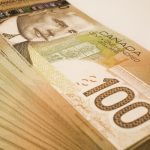The euro rose for a second day against the US dollar, after ECB policy makers signaled deflation risks in the euro area are not imminent, reducing expectations the central bank will use some form of Quantitative easing (QE) to boost inflation in the currency bloc.
EUR/USD hit a session high at 1.3784 at 11;30 GMT, after which consolidation followed at 1.3775, adding 0.24% for the day. Support was likely to be found at April 7th low, 1.3697, while resistance was to be met at April 3rd high, 1.3804.
The euro was supported, after investors closed their short positions, or bets the currency will weaken, which were opened amid expectations the ECB will ease monetary policy. Investors were disappointed, after European Central Bank officials signaled deflation risks in the currency bloc are contained, reducing expectations the central bank will adopt policy that is mainly associated with large-scale government bond purchases, known as Quantitative easing.
ECB executive board member Yves Mersch said deflationary risks weren’t “imminent” and Governing Council member Ewald Nowotny signaled the policy makers dont need to take immediate actions.
Mersch is “putting a softening edge on ECB quantitative easing, saying there’s a very big difference between QE in theory and actually implementing it,” said Richard Cochinos, the head of Americas Group of 10 currency strategy at Citigroup Inc. in New York, cited by Bloomberg. “Europe is oversold. Globally, we’re seeing clients demand higher yielding assets and carry currencies in both the G-10 and emerging markets.”
The comments of the two ECB officials came in contrast with what the ECB President Mario Draghi said last week. According to his words, central banks officials “do not exclude further monetary policy easing” and the Governing Council of the central bank had discussed possible measures to fight against deflation. Draghi added that all the members were “unanimous” that the ECB should explore new policy avenues, contrary to what Mersch and Nowotny stated.
Meanwhile, investors’ attention was focused on the minutes from the March 18-19 Fed policy meeting, due to be released tomorrow. The Federal Open Market Committee, which cut monthly asset purchases by $10 billion at each of its past three meetings, is set to reconvene at the end of the month.
Federal Reserve Chair Janet Yellen said last week that the central bank needed to do more to fight against unemployment, because keeping interest rates near zero for more than five years and swelling its balance sheet with asset purchases seemed not to be enough. She also added that the US economy still needed monetary stimulus for “some time” and that most of the Fed officials shared the same opinion.





